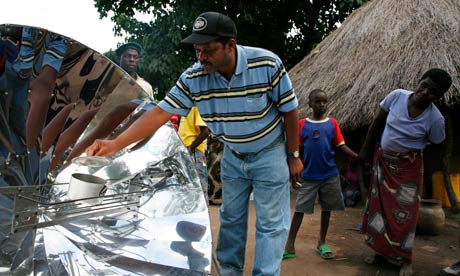Earlier this week, decision makers came together in Oslo to launch Energy+, the international energy and climate initiative. It promises to be a landmark contribution towards securing sustainable energy for all by 2030.
The need for such progress is clear, given that half the world’s population live without modern energy, the majority of people cook on an open fire, and two out of three families in sub-Saharan Africa are without electricity.

Access to modern energy sources transforms lives and is critical to development and moving people out of poverty. But we are making very slow progress in this area. In fact, projections show that just as many women, men and children will be living in energy poverty two decades from now. That’s not development, it’s injustice. So the Energy+ initiative is welcome, acknowledging as it does that neither current levels of financing nor existing programmes are sufficient to address the scale of current challenges.
A long overdue global consensus is emerging, led by the UN and its secretary general Ban Ki-moon, which recognises the importance of sustainable energy access for the wellbeing of the world’s people, the future of the global economy and the preservation of our planet.
As energy moves up the political agenda, however, it’s important that the needs of communities living without energy access are not forgotten. High-level declarations must be translated into delivery, in ways that make a meaningful and positive difference across the developing world.
Right now, we need to increase funding for energy access. But it’s not just an issue of the amount of money available – where that money is spent is equally important. The current donor and government focus is on large-scale, centralised energy schemes: the big power stations and dams. But decision makers need to recognise the value of financing not only major grid initiatives but also, crucially, small-scale work. Locally led schemes – from solar to micro-hydro, fuel-efficient stoves to biogas – will truly ensure that people have the power to challenge their poverty.
We need a new narrative, one that argues for direct investment in energy services for the poor as a way of stimulating development. Such a narrative will help us get away from the traditional notion of energy investment for macro-level economic growth, which relies on the trickle-down effect to tackle poverty.
Delivering energy access will fuel business, economic growth and prospects across the developing and developed world. The challenge of achieving energy for all must be seen as an opportunity, opening up the chance to innovate in terms of systems, finance, capacity and technology.
Governments north and south – and other key players, such as development banks – should formally support the UN goal of universal energy access by 2030.
Why? Because energy for all is achievable. Just 3% of the predicted global investment in the energy sector over the next two decades would secure energy access for all.
With this in mind, Practical Action has launched the Civil society call: energy for all 2030 initiative, endorsed by more than 70 NGOs across Europe and sub-Saharan Africa. The initiative is dedicated to ending energy poverty and achieving universal energy access by 2030.
Source: guardian
 Follow
Follow